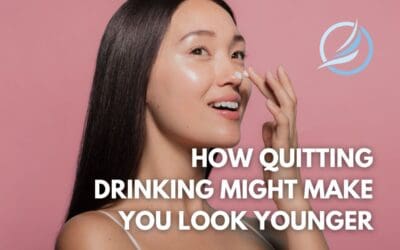There are plenty of reasons why people participate in this increasingly popular month-long challenge of Dry January—many of which align with the optimistic and health-centric nature of New Year’s resolution. Some voluntarily abstain from drinking for the first 31 days as a way to lose weight, for others, it’s an exercise in self-control that also allows their body some respite from the hardy partying of the holiday season. Regardless of why someone decides to join in, they stand to gain much more than they are giving up. If you’re hesitant about jumping aboard the booze-free bandwagon, here are the 4 biggest benefits of Dry January and reasons why you should give it a try.
You’ll stand to save a lot of money (on much more than just drinks)
Perhaps the most obvious benefit of giving up alcohol is that you’ll save money on the cost of the actual drinks themselves (you can calculate the exact amount here). Whether you prefer to go out for cocktails or supply your own, cutting out booze for 31 days is an easy way to keep your bank account happy. But that’s not the only way you can rake in the savings. Often, it isn’t until we remove ourselves from our lifestyle that we realize all the other auxiliary costs that are attached to a single boozing session.
To start, there are the transit costs: parking can get pricey very quickly with valet and pay-to-park (not to mention parking violation fines) is the biggest one, followed by the cost of ridesharing (those surcharges are no joke). Smaller, but still meaningful, cost savings come in the form of gas and tolls. Plus, we’re willing to bet that most nights out end with a greasy fast food joint. Those drive-thru orders add up—as do the calories. To make matters worse, drunk you has impaired decision-making skills meaning you are much more prone to being irrational and impulsive. During this state that can result in you ordering more food than you are actually capable of eating, or doing some online shopping for items you normally wouldn’t get which will certainly cost you (and be an unpleasant shock in the morning).
You’ll lose weight
Drinking hurts your waistline in multiple ways. Alcohol is a notorious calorie bomb filled with sugars and carbs—the culprits behind most weight gain. Your standard can of beer? 150 calories. Wine? 123 calories. A single shot (1 ounce) of hard liquor will have about 70 calories. The real kicker, however, is the sugary syrups, juices, and sodas used in cocktails.
Plus, as mentioned before, most drinking sessions end with a trip to fast food restaurants where greasy, salty, and cheesy reign supreme. As if that wasn’t bad enough, consuming food late at night, so close to bedtime, means that your late-night snack won’t have a chance to get burned off. Once your midnight snack is digested, it will simply turn into fat. This circumstance is compounded by the fact that alcohol acts as a depressant on your metabolism, making your already slower than usual metabolism even more sluggish.
You’ll have more free time
This benefit of Dry January is a double-edged sword. On one hand, skipping out on your routine happy hour meet-up could leave a big gap in your day, making you realize that you have a lot more time than you initially thought. You’ve discovered a nugget of time you can use to fit in a workout, read that novel you’ve been meaning to get to, or meal prepping some healthy lunches.
The potentially less-pleasant realization, however, is how much of your socializing centers around alcohol and feeling lost without it. This isn’t uncommon as many social norms revolve around communing over food and drinks. Still, it can make social gatherings feel awkward, anxiety-inducing, or even pointless. Instead of mourning the loss of your usual past time, use this break from drinking to find new activities to add to your social repertoire.
Your tolerance will decrease
It’s incredible how quickly the body can adapt. Drinking on a regular basis will result in an increased alcohol tolerance that will require you more and stronger drinks to feel them. This is bad news for your wallet, your waistline, and your overall health. Even if you don’t feel tipsy, alcohol is still impacting your internal organ functions. If your tolerance continues to build up you could incidentally put yourself in a position of alcohol poisoning because you’re chasing a buzz.
Dry January is a reset and a wonderful opportunity for the body to demonstrate it’s equally impressive ability to revert to its normal state. If you were to resume drinking again, you would find that you would be able to feel alcohol’s effects in fewer drinks than before which will save you money and your organs from having to work so hard—win-win! Of course, you don’t have to resume drinking once Dry January is over. Experts recommend cutting out drinking for 90 days will yield the most benefits and give your internal organs enough time to truly recover.
Caution Ahead: Dry January Isn’t For Everyone
Moderate drinkers who stay within the one-beverage-a-day threshold won’t see as drastic benefits of Dry January as someone who regularly binge drinks. The disruption to their social life or mental health maintenance might not be worth the temporary sobriety.
Additionally, Dry January can actually be a dangerous undertaking for alcoholics. The sudden lack of alcohol can induce withdrawal symptoms and, depending on the severity of the addiction, alcohol withdrawal effects can be dangerous and even fatal. Instead of trying to get sober on your own, addiction treatment facilities offer specialized detox programs that can help alcohol abusers do so safely.

































